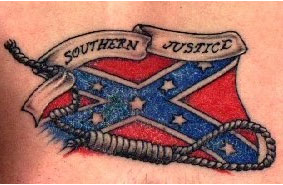Until very recently, I drove a car that would have made the most transportation-desperate of high school seniors blush, wince and flee: a gold, 1992 Nissan Maxima. It was bought off a used car lot in 1995 for $10,000 and even after being demoted to the level of station car, at 200,000 miles it was mechanically perfect (its unseemly exterior of dents, dings and rust notwithstanding).
On the way to school one morning with my then nine-year-old son, we crossed paths with a new Maxima. “It’s been totally redesigned,” I explained. My son’s response blindsided me: “Then what makes it a Maxima?”
Without warning, my own son had stabbed me in the back with the paradox of the knife: If John has a knife, then he changes the blade, then later changes the handle, is it still John’s knife?
So, what precisely does make the redesigned Maxima a Maxima?
Let’s start with an easier question: What makes a Harley-Davidson a Harley-Davidson?
Some hog loyalists might say that Harleys built between 1969 and 1981 aren’t really Harleys. In 1969, the Harley-Davidson company was purchased by AMF. That purchase was the first break in the heritage of company ownership by descendants of co-founders William S. Harley and the Davidson brothers. Harley-Davidson was a family-owned business that had been stripped of its family. Then, in 1981, the company was purchased back from AMF by a group of investors that included Willie G. Davidson – a formidable bike designer in his own right and grandson of co-founder William A Davidson.
What makes a Porche a Porche?
Remember the 928, that front-engine, rear-transmission powerhouse that was intended to supersede the 911 line of rear-engine designs? Despite the 928S being faster than the 911 Turbo at the time, Porchefiles ignored the car for a number of reasons, not the least of which being that “real” Porches are rear-engine powered. Porsche halted production of the 928 after a 17-year run. The 911 series, which is still in production, was introduced in 1964.
What makes a Gibson Les Paul a Gibson Les Paul? In my opinion, a Les Paul is a Les Paul only if it was made at Gibson’s now defunct Kalamazoo plant.
In each example above, product identity is determined not by a nameplate, but rather by a heritage, a product mythology, a narrative that is meaningful to clan loyalists. And while clan members may argue over details, what each member shares is the belief in a specific product narrative that clearly marks the boundaries of what qualifies as a Harley Davidson, a Porsche, a Les Paul.
So, what makes a Maxima a Maxima?
The first Nissan Maxima dates back to 1976, when the Nissan brand was still sold under the Datsun name in the US. But it wasn’t until the third generation (1989 – 1994) that the Maxima truly came of age. Powered by a 3.0L V6, the 1976 Maxima was the first Japanese car to exceed Japan’s width restrictions making it a comfortable sedan for the US market. When you take power and couple it with comfort, you end up with what is, to this day, marketed as a “4-door sports car.”
Now in its seventh generation, the Maxima is bigger, faster, sexier, and boasts amenities that rival those of European sports sedans – those other “4-door sports cars.”
That, my friend, is what makes a Maxima a Maxima.







 One can barely take a breath without being bombarded with reminders that the United States is a country divided.
One can barely take a breath without being bombarded with reminders that the United States is a country divided.